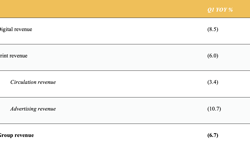Many publishers are facing the dilemma of how do they deliver their free newspapers. The most obvious choice is for youngsters up to the age of sixteen and usually not less than thirteen. The biggest, and almost too compelling, argument is the low cost. Kids are far and away the cheapest way of operating a distribution network and of course costs are multiplied greatly for the large publishers who are operating free newspapers over many centres.
For many publishers, the distribution reality is generally a mixture of systems, dependent on immediacy rather than long term planning. Holidays, sickness, uncovered rounds, pitted against VFD obligations and advertiser and leafleter demands, can sometimes mean that publishers will accept any means possible just to ensure that a regular distribution is achieved.
Certainly teams are the easiest to implement and come with their own transport and can generally organise themselves when it comes to route planning. However, all this operational ease comes at a cost which can, for some publishers, prove a "bridge too far."
Adults, whilst offering reliability and longevity of tenure, can be subject to income tax burdens. Additionally their employment will always be sporadic and normally be just supplementary to other distribution methods.
The problems with using mainly children as your main delivery source are manyfold. They are generally unreliable and disloyal, care little for the product and have an alarmingly short shelf life. However they are comparatively cheap, which will always make them front runners when planning a free newspaper distribution operation. If you want to get the best out of your distribution operation it's not who you employ but how you employ.
Restructure
Like many publishers of free newspapers, Scotsman Publications faced a series of problems with our distribution operation. Our delivery rounds were created over ten years ago when the papers were much smaller and there was virtually no leaflet business to speak of. The rounds were originally built before marketers realised the power of the postcode network so many of our rounds crossed sector boundaries and, despite our attempts to append postcodes, our records were far from accurate. Changes in government legislation, new health and safety regulations and a burgeoning leaflet market presented us with a number of challenges. We decided to embark on an ambitious project to completely relaunch our three free newspapers in August 2003.
First we developed our own electronic round creation system, later named ERICA (Electronic Round Information Creation Application), to enable us to recreate our newspaper delivery rounds using postcode geography as our building blocks. By linking high detail Ordnance Survey maps with postcode boundary information and PAF data we were able to build brand new rounds covering 280,000 homes in just six weeks.
With our new rounds in place we decided to take responsibility for our 1,200 strong distribution workforce. Instead of hiding behind our self-employed agent network we decided to take on all our distributors as employees. Previously we employed some 33 agents who handled child recruitment, wage payments, territory management and backchecking. The problems here were manyfold and, with an eye to future legislation, we felt that the current system was not going to work. For instance, with the agents recruiting children, organising payments and handling backchecks it meant that you really were not in control of what should be happening. This was portrayed graphically when, after the agents’ dismissal, we unearthed numerous anomalies regarding covered / uncovered rounds. Additionally we were acutely aware that, with the current drift into compensation culture, it could be difficult to stand up in court and deny responsibility for a child's now bad back while he / she had been in the care of the agent. After all it was us who were supplying the product, bag, trolley, payment and more than likely we carried the original recruitment ad in our paper.
All employees now
We now take full responsibility for the children in our employ. They are all now employees and are now entitled to two weeks paid holiday per year and are only employed after a 30 minute interview / induction. They are now automatically provided with a delivery trolley and bag.
All our distributors are in direct contact with the distribution department at our Holyrood headquarters where all their questions and problems are answered. Our distributors are all paid electronically by BACS every fortnight and we deliver papers and leaflets (pre-sorted) to their homes each week.
We employed three full-time distribution supervisors with the specific task of managing and recruiting our workforce and we staffed up in our warehouse operation to enable us to sort through the millions of leaflets we process each week to produce the individual allocations required by each of our distributors.
The entire restructure was more than twelve months in the planning but the time and effort was well worth it. We are now in total control of our distribution operation and are completely in touch with what's going on at the front end. We are now able to provide our distributors with a better level of service because we are responsible for every link in the distribution chain and we believe that our advertising and leaflet clients will also reap the benefits.
Recently we launched our fourth Herald & Post title in Perth. ERICA meant that round planning was efficient and cheap. The fact it was done remotely meant that we could map all of Perth without alerting the opposition as to our intentions. The disciplines we have put in place have meant that building the distribution network was fast, efficient and an unqualified success. Also, if we had not embarked on the restructure we would never have defined the need for a digital mapping tool. We are now marketing ERICA to other publishers and distribution companies.
Our standards of performance
* Instructions provided to increase safety standards and raise efficiency. Each potential distributor receives a visit from one of our distribution supervisors. Where the distributors are under 16 these are always conducted in the presence of a parent or guardian. All our supervisors are screened under Disclosure (Scotland) and approved to work with children.
During the visit the distributor is presented with a trolley and delivery bag and they are taken through the 'Distributors’ Handbook' which covers all aspects of the job, providing hints and tips on how to perform their role in a safe and responsible manner.
We no longer provide conventional shoulder bags and insist that our distributors use the trolleys provided. This reduces the weight carried and increases the speed of delivery. The trolley bags are also over-printed with a series of safety guidelines as an added reminder.
All distributors who are still at school are required to complete a 'Local Authority Work Permit' which is then forwarded to their head teacher. This ensures that the schools are completely aware of any extra-curricular activity that may have an adverse effect on the pupil's performance at school.
* Instruction documents / manuals. Each distributor is requested to sign a 'Statement of Terms and Conditions.' This provides details of the job description, hours of employment, remuneration, holiday entitlement / qualification etc. It also declares that the individual has read all of the above and also the distributors’ handbook. As with all our paperwork, if the distributor is under 16, it is also countersigned by a parent / guardian.
To ensure that we have all the necessary employee details, the distributor is also required to complete an application form which gives us name, address, date of birth, telephone number, school name and bank details. The form also contains a tax declaration. Where the distributor is over 16 we also ask for National Insurance information. If the individual requires to pay tax we request a P45 or ask them to complete a P46 so we can tax them at the required rate. Distributors also receive a round card and a map showing the streets involved.
* Communication network. The department is managed by the admin distribution manager who has a team of three field distribution supervisors, a departmental supervisor and three distribution assistants. This team is the first point of contact for our distributors. Any individual applying for a job will generally apply via our hotline number, however we also have an email address and a text number. All relevant information is then passed on through the correct channels; applicants to the field distribution manager, delivery problems to the transport department etc. Apart from contacting distributors by telephone or meeting them face to face, we write to them regularly and use the wage slips to communicate relevant information or to highlight upcoming activities.
* Awareness and implementation of child employment laws. Since we distribute across several council boundaries we have contacted each council to get the child employment guidelines within that area. The working practise can differ slightly from council to council, however, due to the limited time spent delivering the Herald & Post this in no way breaches any area of the children’s employment permit. The distributors’ handbook specifically states the working hours permitted by law for individuals of school age and employees are asked to contact us if they feel that they are unable to complete their duties within the allotted time frame.
* Holiday cover. Under the terms of their contract, all our distributors are entitled to two weeks paid holiday per year. Due to the fact that all distributors are employed by Scotsman Publications, it is not possible to hire distributors to simply cover a round for one or two weeks. Instead, we try to cover holiday rounds using a team of external contractors who can cover on an ad-hoc basis.
FEATURE
Free newspaper distribution – the case for kids
Children are cheap but unreliable; adults are reliable but expensive. Your free newspaper requires efficient distribution but margins are tight. TSCL’s Colin Peter maintains that, if managed properly, using kids can be both cost effective and efficient.










